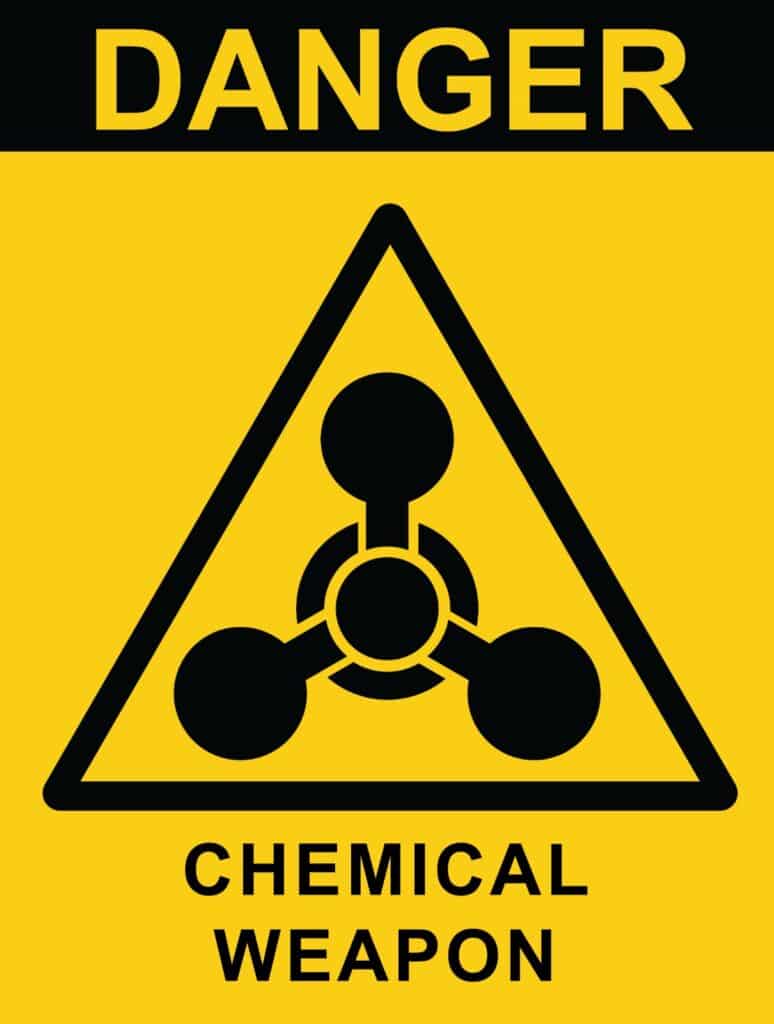On November 20, Al-Hadath, a Saudi Arabian media outlet, published a report claiming an intention to transfer chemical warhead-armed rockets to Hezbollah in Lebanon. According to the report, the rockets are currently situated in the Masyaf area (northwestern Syria) and are to be transferred to Al-Qusayr and, from there, into south Lebanon to the Bint Jbeil area (through the Bekaa area).
The assumed route of the transfer of weapons to Lebanon is logical, as described in our recent research paper on the Iranian corridor. Despite this, many questions arise regarding the report:
- Al-Hadath is a Saudi media outlet with sources of information whose reliability is ambiguous. It is also known that the Saudi authorities use Al-Hadath to leak information to generate influence.
- CERS Institute 4000 is located in Masyaf, was attacked from the air on August 25, causing severe damage to its infrastructure.
- As for the type of chemical weapon. Is it also a chemical weapon from the nerve gas sort (for example, the sarin compound which the Syrian army used, according to reports in 2013 and 2017) or also a weapon from the sort of chemical weapon that causes burns, such as Sulfur mustard? Chlorine gas is considered a “simple and primitive” chemical substance. Chlorine is very common in the civil industry, its color is yellow, and it causes chemical burns in body tissues that are exposed to it.
- The transportation and storage infrastructure of the alleged chemical weapons is more complex than the transportation and storage of conventional weapons. A chemical weapon is limited in terms of its effectiveness time after its production. Whoever owns such a weapon must refresh it from time to time or keep its components separately and mix them only before use.
- Why was the Bint Jbeil area in south Lebanon chosen to locate the weapons? This area is considered by Hezbollah as a more vulnerable and security-penetrated area.
- Is Hezbollah ignoring the consequences to itself and Lebanon due to using a chemical substance against Israel?
As of today, almost all conventional weapons and advanced conventional weapons existing in Syria have been transferred from Syria to Hezbollah in Lebanon. According to publications, Syria possesses various types of chemical weapons, and the potential for their transfer to Hezbollah exists.
Hezbollah’s tactical use of any chemical substance (simple and primitive) in the next confrontation against Israel cannot be ruled out. In our assessment, should Hezbollah resort to such means, its use will be limited, and it will be launched via cannon shells and/or rockets, and as far as Hezbollah is concerned, such a use will be considered a last resort to achieve a “conscious perception” of victory and creating panic. In our assessment, Hezbollah will use a substance whose cause chemical burns of varying degrees, such as chlorine. If Hezbollah decides to use such weapons, it will do so despite the risk to the Lebanese population itself.
A recent example of chlorine gas’s ability to cause damage occurred on June 27, 2022, in the port of Aqaba in Jordan. A chlorine gas tank exploded, killing 12 people and injuring 250 others.
According to publications from recent years, during the civil war, the Syrian army used chlorine through rockets, shells, and explosive barrels. For example, in the town of Duma in April 2018 and Idlib in September 2018. ISIS also used chlorine during the Civil War.
In our assessment, if Hezbollah uses such weapons, it will prefer to do so against IDF forces maneuvering inside Lebanese territory or adjacent to the border inside Lebanese territory. Using chemical weapons on Lebanese soil would be considered legitimate by Hezbollah as the “defender of Lebanon” and a calculated managerial risk despite the Israeli expected response towards using unconventional weapons against it.
It is very unlikely that Hezbollah would use such weapons against military targets or the civilian population within the territory of the State of Israel. Hezbollah understands that such use would cause irreversible damage to Lebanon in general and Hezbollah in particular (to say the least…).






